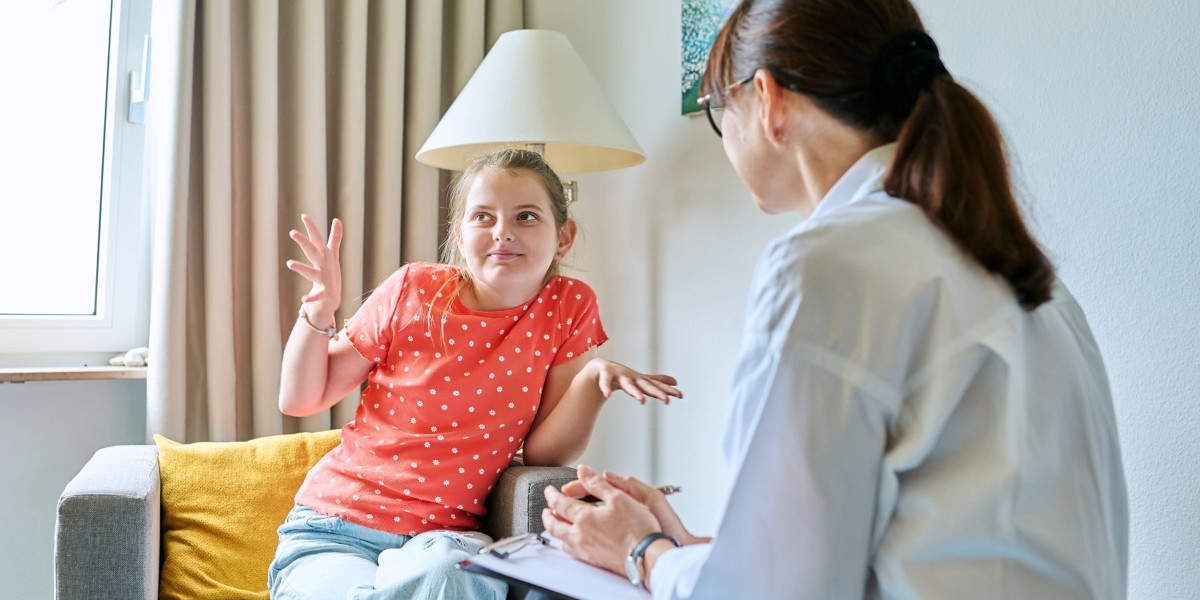In this post, we’ll break down some of the most common myths about child psychiatry and share the reality of what modern psychiatric care truly offers today’s children and teens.
Why Child Psychiatry Matters
Child and adolescent psychiatry are all about diagnosing and treating mental illness in children and adolescents. Early, compassionate treatment enables children to better understand their thoughts, feelings, and behavior, laying the foundation for healthier, more fulfilling lives.
Myth #1: Psychiatrists Just Hand Out Medication
Reality: Medication is only part of a much larger plan.
While medication could be helpful in some cases, it is never a one-size-fits-all solution. Child psychiatrists take into consideration the circumstances of each child before making a recommendation. Treatment commonly includes therapy, lifestyle modification, and counseling from family members. The goal is not to "numb" feelings but to allow children to identify and cope with their feelings in a healthy, balanced way.
Myth #2: Talking to a Psychiatrist Is Like Talking to a Friend
Reality: Psychiatric treatment is based on expert training and therapy, not social talk.
While connection and rapport are crucial, appointments with a psychiatrist involve so much more than friendly chat. Child psychiatrists are experts in childhood development, emotional health, and mental illness. They use evidence-based therapies cognitive-behavioral therapy (CBT), play therapy, and art therapy to help children build resilience, process complex emotions, and develop.
Myth #3: Psychiatry Is Only for Serious Mental Illness
Reality: Help is offered for many kinds of problems.
You don't have to wait until a problem is serious before seeking help. Psychiatrists work with children who have problems with anxiety, depression, attention deficit, behavior issues, and others. Getting help early can prevent things from getting worse and can make a child feel better at home, at school, and with friends.
Myth #4: Kids Can't Talk Well
Reality: Kids communicate in different ways psychiatrists know how to listen.
Young children do not necessarily verbalize what they are going through, but they do so in play, action, stories, and pictures. Child psychiatrists come to recognize and read such cues, using developmentally sensitive measures to read a child's inner experience.
The Value of Early Intervention
The sooner a child receives mental health assistance, the more effective. Early intervention can prevent long-term challenges and foster emotional, social, and intellectual development. It's a proactive investment in a child's overall well-being.
A New, Total Approach
Child psychiatry has come a long way. Now, it is an active, evidence-based treatment of the entire child’s mind, body, and surroundings. The one-size-fits-all days are over; current care is individualized, empathetic, and centered on long-term health.
Parents and Caregivers: Essential Care Partners
You, as a parent or caregiver, play an important part. Your support, participation, and communication with your child's care team can make a significant difference.
· Stay involved – Attend appointments, ask questions, and stay up to date.
· Build trust – Create progress with patience and hope.
· Be open – Provide information about your child's needs, challenges, and strengths.
Why HWS CENTER Health?
At HWS CENTER Health, we understand the richness and sensitivity of working with young minds. Under the guidance of Dr. Yuli Fradkin and an experienced, compassionate team, we deliver personalized care informed by the latest research and best practices.
We offer a full spectrum of services from medication management to expressive therapies within an empathetic, family-centered setting. Our mission is to guide your child toward emotional well-being and journey alongside your family.
Let's Change the Conversation Together
The more we talk about mental health, the more we make caring commonplace and the healthier the next generation will be. Through education, compassion, and early intervention, we can teach children to be emotionally resilient, well-adjusted, and self-confident.







